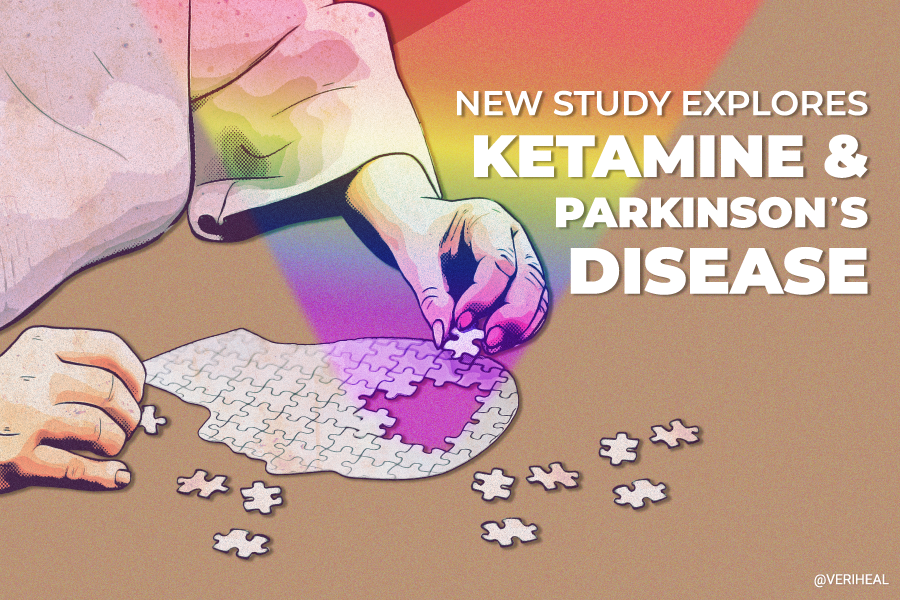Researchers working at the University of Arizona College of Medicine in Tucson have refined a method of ketamine use in the treatment of Parkinson’s disease (PD). Specifically, the group focused on ketamine’s ability to relieve the side effects of a common treatment called Levodopa.
Nicknamed “K,” “special K,” “cat valium,” and “vitamin K,” ketamine is also commonly referred to as “horse tranquilizer.” While it is approved for use as a sedative for animals, it is also utilized as an anesthetic for people. Once known solely as a party drug, ketamine is starting to earn a new reputation thanks to research efforts into its potentially medicinal qualities.
Following the successful experiment into the potential safety and efficacy of using ketamine for Parkinson’s patients, the university proceeded to sign an exclusive licensing partnership with Pharmather Inc., a subsidiary of Newscope Capital Corporation, for the development and marketing of their unique treatment.
Studying Ketamine Use for Parkinson’s Disease Patients
The University of Arizona’s researchers learned that the unwanted side effects of Levodopa, a commonly used method of treatment for PD, could be drastically reduced with ketamine. According to the team, administration of ketamine had a noticeably diminishing effect on involuntary limb movements, aka “dyskinesia.”
Titled, “KET-LID study,” the study into the safety, efficacy, and tolerability of low-dose ketamine infusion for Levodopa consumers is not brand new—it was carried out around five years ago. However, it is attracting fresh attention amid the rise of psychedelics in medicine.
Not only did researchers discover that dyskinesia symptoms noticeably shrank in patients who received ketamine treatment, but they also learned that ketamine-treated patients experienced no serious negative side effects. Researchers were prepared for the adverse effects that were reported, all of which were either mild or moderate.
The study’s findings prompted another study, but this time into rodents with PD. As the team predicted, ketamine did stop uncontrollable movements for a total of three days before returning 10 days post-consumption as baseline involuntary movement.
Based on preclinical data results and five case studies in PD patients, University of Arizona associate professors Scott Sherman, MD, Ph.D., and Torsten Falk, Ph.D., collaborated with Tech Launch Arizona—the university’s technology commercialization office—to submit a patent application.
Dr. Sherman, the study’s lead investigator, says that ketamine has long been “overlooked” and, taking into account the recent study’s results, the substance may offer a number of advantages for Parkinson’s patients. “The results of this clinical study further support that ketamine is well-tolerated even in an older population of patients with advanced Parkinson’s disease,” said Sherman.
Considering Ketamine to Curb the Side Effects of Levodopa
PD is a common neurodegenerative disease that affects approximately 10 million people around the world. It is characterized by the following symptoms:
- Bradykinesia
- Body rigidity
- Tremors
- Postural instability
- Slowness of movement
- Poor balance
- Limb stiffness
Unfortunately, no cure currently exists for PD. However, in most cases, a drug called Levodopa is used to reduce the severity of symptoms. The drug falls into a class of medications known as “nervous system agents.”
Although effective at reducing the symptoms of PD, Levodopa causes dyskinesia in 40% of patients. Dyskinesia may arise after long-term Levodopa use, and it is characterized by erratic and involuntary movements of the arms, face, legs, or trunk. Only after a Parkinson’s patient stops using Levodopa will the unwanted side effects disappear, but this means that the symptoms of PD will resurface.
Fortunately, Sherman says that the new research “opens the door to a fast-track development of a novel non-surgical treatment for levodopa-induced dyskinesia that will fill a major gap in the existing therapeutic arsenal.” His opinion is shared by the CEO of PharmaTher, Fabio Chianelli:
“It gives us further confidence that ketamine can safely and effectively reduce LID in patients with Parkinson’s disease and it paves the way for a potential Phase III clinical study.”
The Future of Ketamine Use in the Medical Field
As many as 250 clinics across the U.S. are currently receiving legal off-label ketamine to assist them in treating depressed patients. Although the Food and Drug Administration (FDA) approved ketamine as an anesthetic in the 1970s, the FDA has not yet validated its use for mental health and pain disorders.
Notwithstanding the FDA’s stand-offish approach to ketamine-approved treatments, there’s no doubting the fact that the dissociative anesthetic harbors potential as an aid for treating anxiety, depression, Parkinson’s disease, and PTSD, to name a few. For example, a 2021 review found that intranasal ketamine may be a safe and effective alternative to intravenous opioids for adult patients who suffer from acute pain.
At the current time, researchers are busy carrying out a small-scale Phase I clinical trial into ketamine for PD. As part of the trial, UA investigators will explore the effects of ketamine on a total of 10 Parkinson’s patients to understand just how suitable ketamine could be for relieving the side effects of Levodopa-induced dyskinesia. The study’s outcome will be revealed during a medical congress presentation no later than June 2022.
Author, Share & Comments















